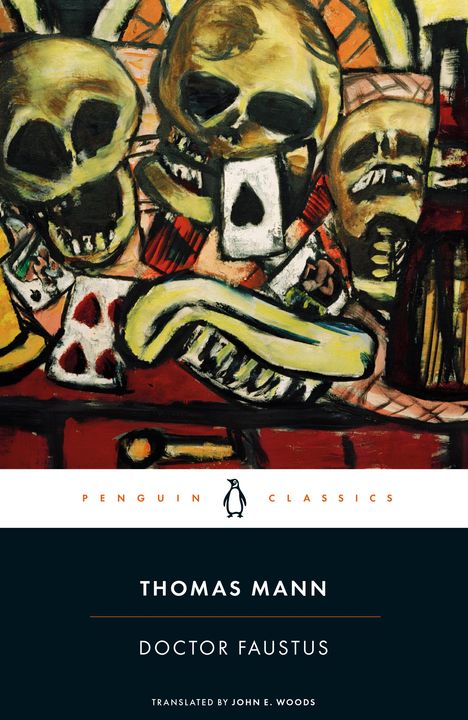Thomas Mann: Doctor Faustus, Kartoniert / Broschiert
Doctor Faustus
Lassen Sie sich über unseren eCourier benachrichtigen, sobald das Produkt bestellt werden kann.
- Übersetzung:
- John E. Woods
- Verlag:
- Penguin Books Ltd (UK), 09/2026
- Einband:
- Kartoniert / Broschiert
- Sprache:
- Englisch
- ISBN-13:
- 9780241785416
- Umfang:
- 544 Seiten
- Gewicht:
- 500 g
- Maße:
- 198 x 129 mm
- Stärke:
- 35 mm
- Erscheinungstermin:
- 10.9.2026
- Hinweis
-
Achtung: Artikel ist nicht in deutscher Sprache!
Weitere Ausgaben von Doctor Faustus |
Preis |
|---|---|
| Buch, Kartoniert / Broschiert, Englisch | EUR 11,97* |
Ähnliche Artikel
Klappentext
The definitive translation of 'Arguablythe great German novel' ( New York Times)
'This man is mad. Of that there can no longer be any doubt, and it is pitiable that no one representing psychiatric science is part of our circle'
In May 1943 a middle-aged scholar retires to his study to reflect on the life and untimely death of his friend, a once-brilliant composer and the flower of German culture. He recalls how, consumed by over-reaching ambition, this friend made an unholy bargain in return for creative genius. How he enjoyed twenty-four years of unrivalled success and musical achievement - until, inevitably, he had to pay his dues. A reworking of the classic Faust legend, Doctor Faustus is one of the twentieth century's finest novels: a powerful allegory of the rise of the Nazism, and a warning against the seductive attractions of nihilism.
Translated by John E. Woods




